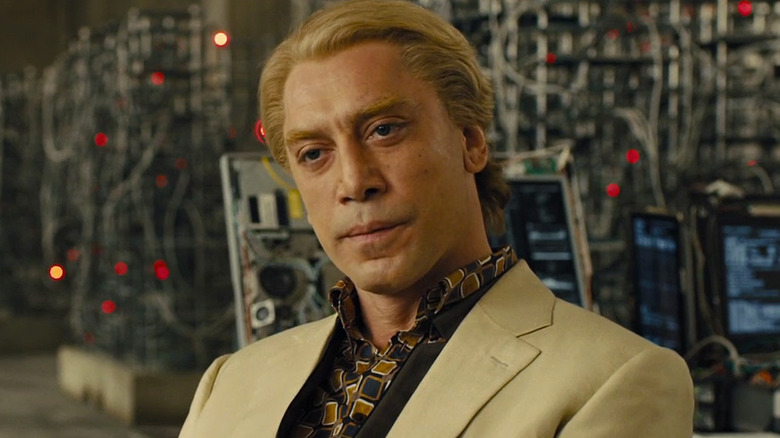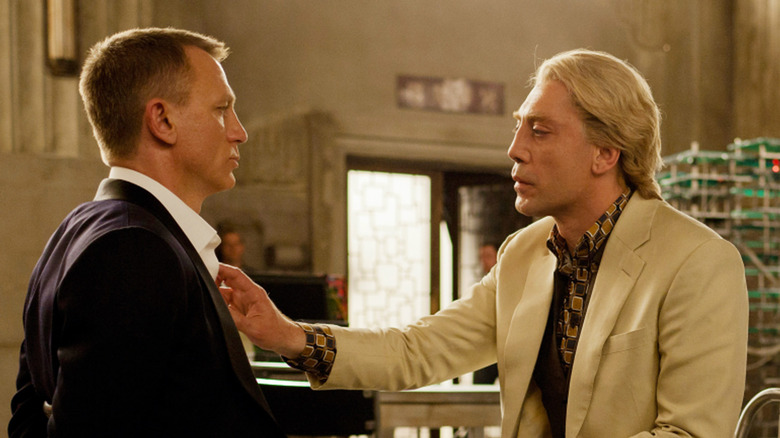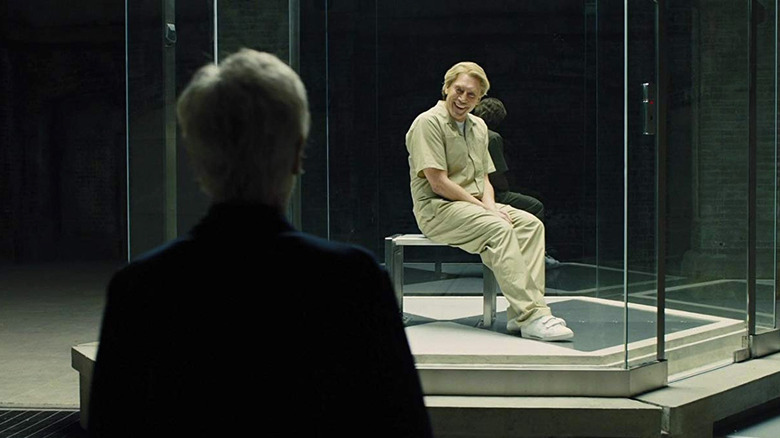Javier Bardem Had The Skyfall Script Translated Into Spanish To Get Into Character For His James Bond Villain
What makes a good Bond villain? It depends on who you ask, but to this writer at least, the best of Bond's adversaries pose a serious threat to the world, and to the spy at the center of it. In our post-9/11 landscape, the concept of a more realistic villain is infinitely more compelling, and it's a concept that Sam Mendes' "Skyfall" — which celebrates its 10th anniversary today — understood well. The Craig era on the whole completely rewrote the book on what would pose a threat to the world of Bond in the future: real-world terror, sure, but also the looming fear of obsolescence. Bond's most interesting villains are mirror images of the spy himself: government agents who've been chewed up and spit out by their organization, and who seek to replace them with their own world order. They're threatening because they've been scorned, because they understand their enemy intimately — but also because they earn our sympathy.
None of this is more true than for the Big Bad of "Skyfall," Raoul Silva (Javier Bardem). His tragic past is still more or less a mystery by the time he finally appears in the film, but all it takes is one powerful scene to lay out his resentment for MI6, and for head honcho M (Judi Dench). Through Bardem, the character takes on dimensions that few Bond villains manage to achieve, and his character is only elevated by staging, shot design and script. It may come off as effortless at the end of the day, but Silva's introduction actually took a lot of work — not to mention an unorthodox approach to the script — to get right.
The tale of two rats
In the early stages, Silva's introduction to the story was originally pretty cut and dry, according to Mendes. "When [screenwriter] John Logan first delivered this scene, Bond was knocked out on the yacht by a heavy and woke up to find Silva sitting opposite him," Mendes explained on the "Skyfall" commentary. But when the director began working through the script himself, he started to envision a very different presentation. "I had a very strong sense that we needed to give [Silva] an entrance, and that that entrance would lead into the speech ... and I felt that we needed to do it in one [shot]."
Such an idea likely excited Mendes — this is the director of "1917" we're talking about — but it presented a slightly-daunting challenge to Bardem. Mendes made sure to warn Bardem about the one-take sequence ahead of time. "He looked at me with a slightly worried expression," as English is not the actor's first language. With this in mind, the "Skyfall" script underwent another notable change, but only after Bardem translated the script for his own purposes:
"One of the things Javier did was translate the script back into Spanish. He'd rehearse it in Spanish, and come back to me with specific requests about word changes and adjustments and punctuation and all sorts of things. And when he came and when he arrived on set, he was fully, fully prepared."
Whatever works
The script wasn't the only area that Bardem put his own spin on. The actor also made adjustments to Silva's look — his hair, his silhouette, even his eye color — and it all paid off spectacularly. Still, Mendes was most impressed with Bardem's mastery of Silva's monologue.
"[O]ne of the more remarkable aspects of his performance is how well he uses language and how well he uses, or expresses, nuance and subtleties within the language," Mendes continued. It's one of the many things that really elevated the character of Silva, and what makes him one of the more memorable Bond villains, even a decade after his debut.


